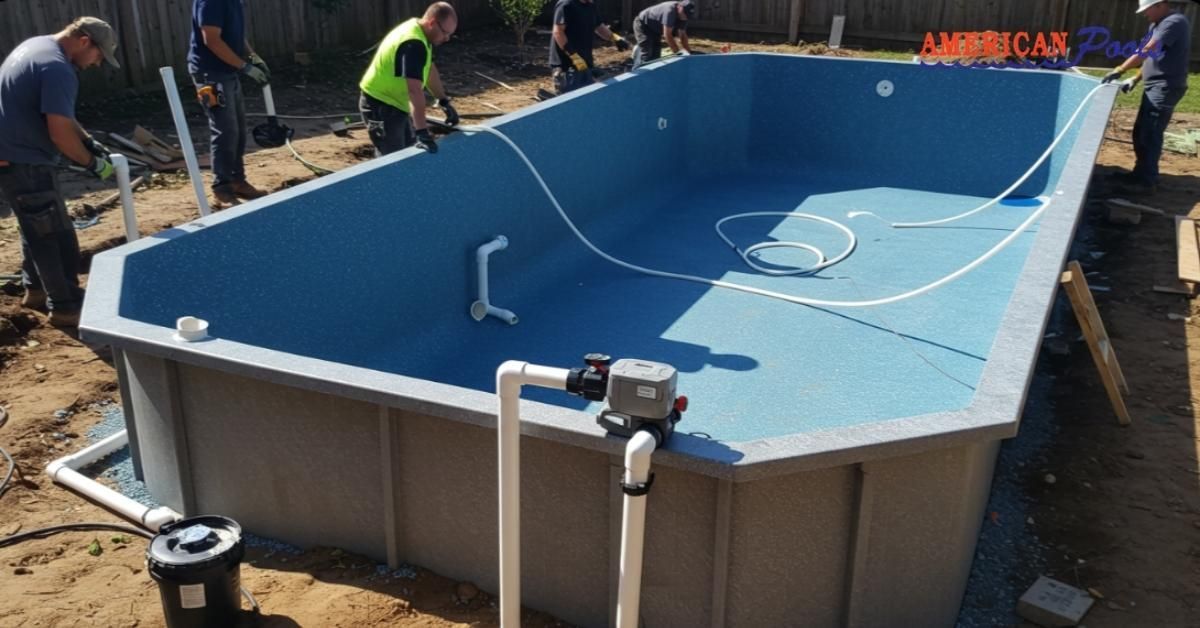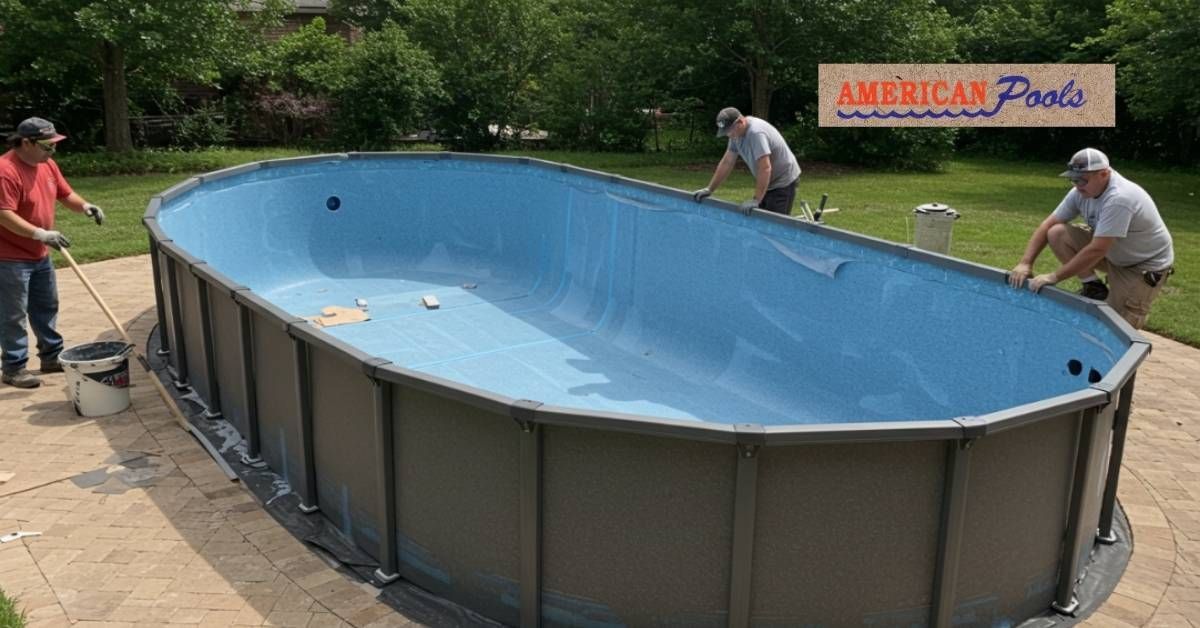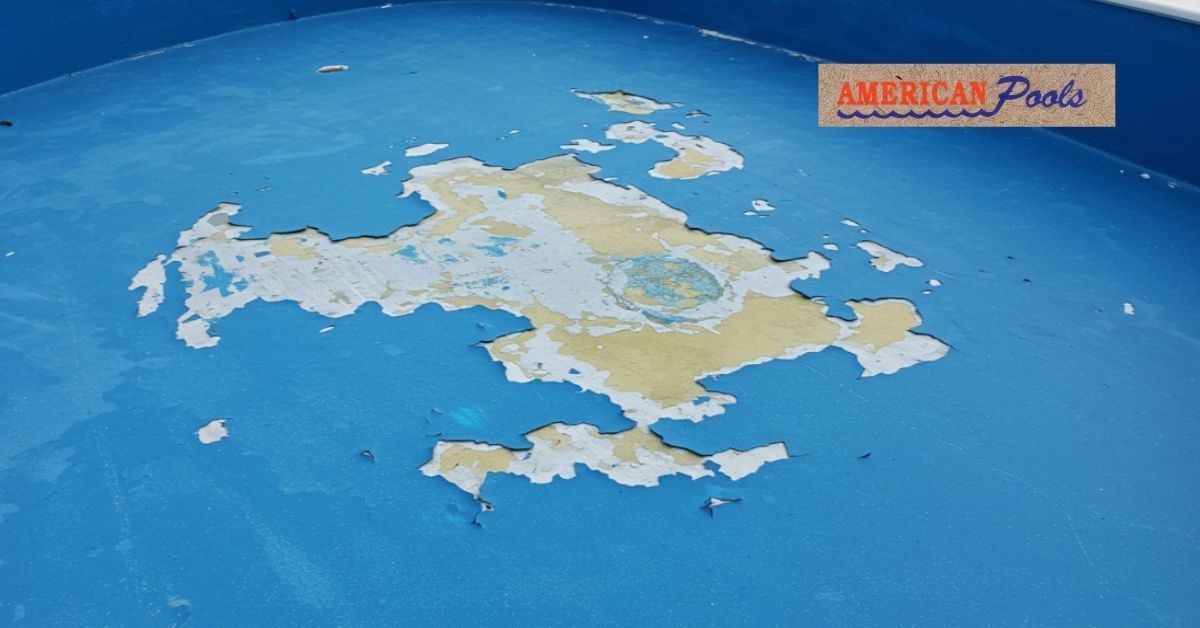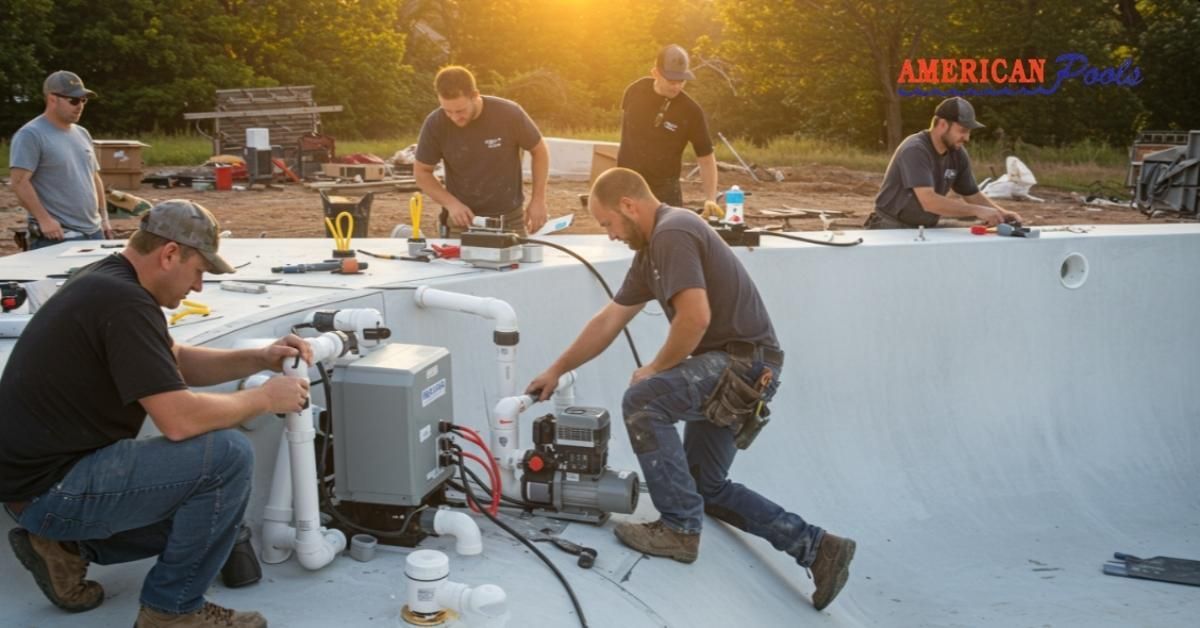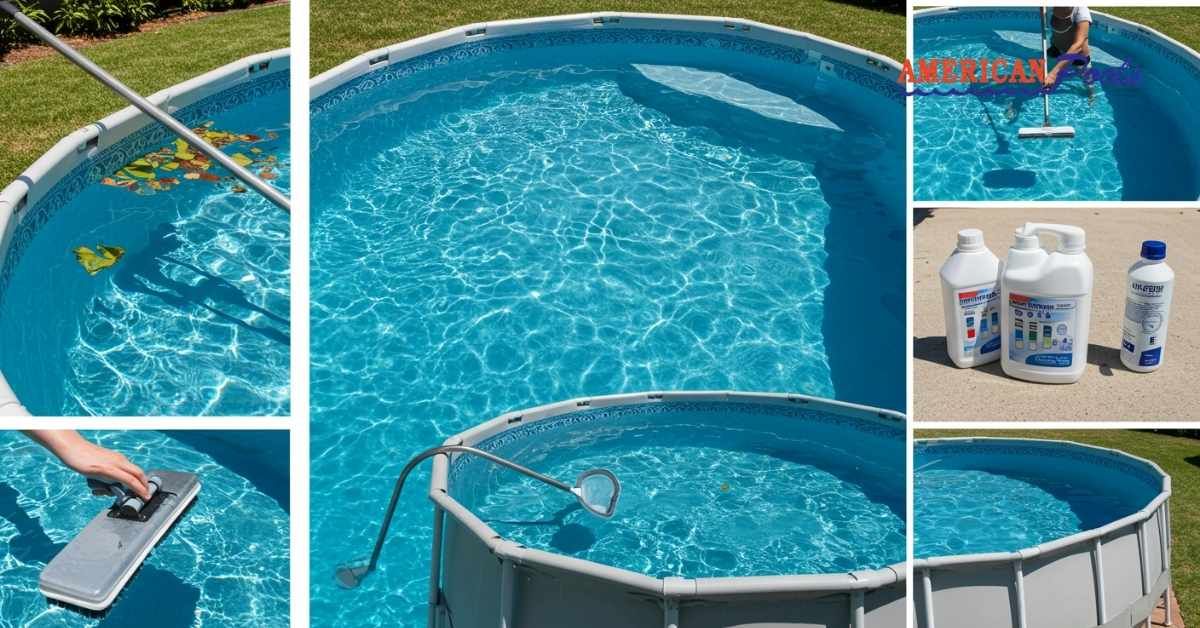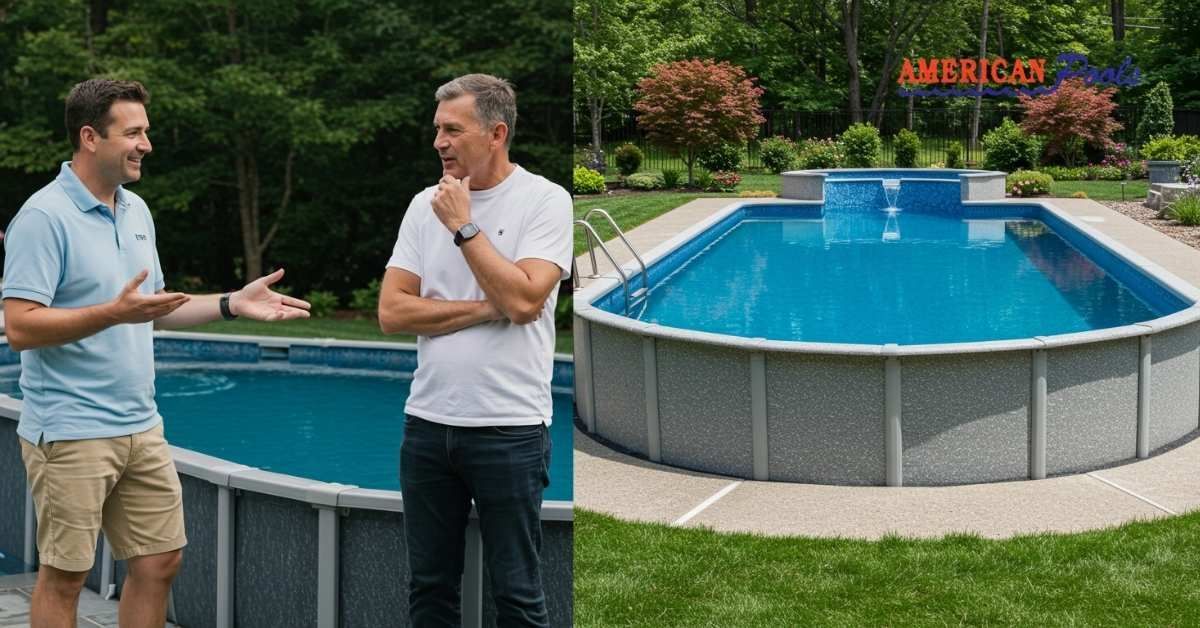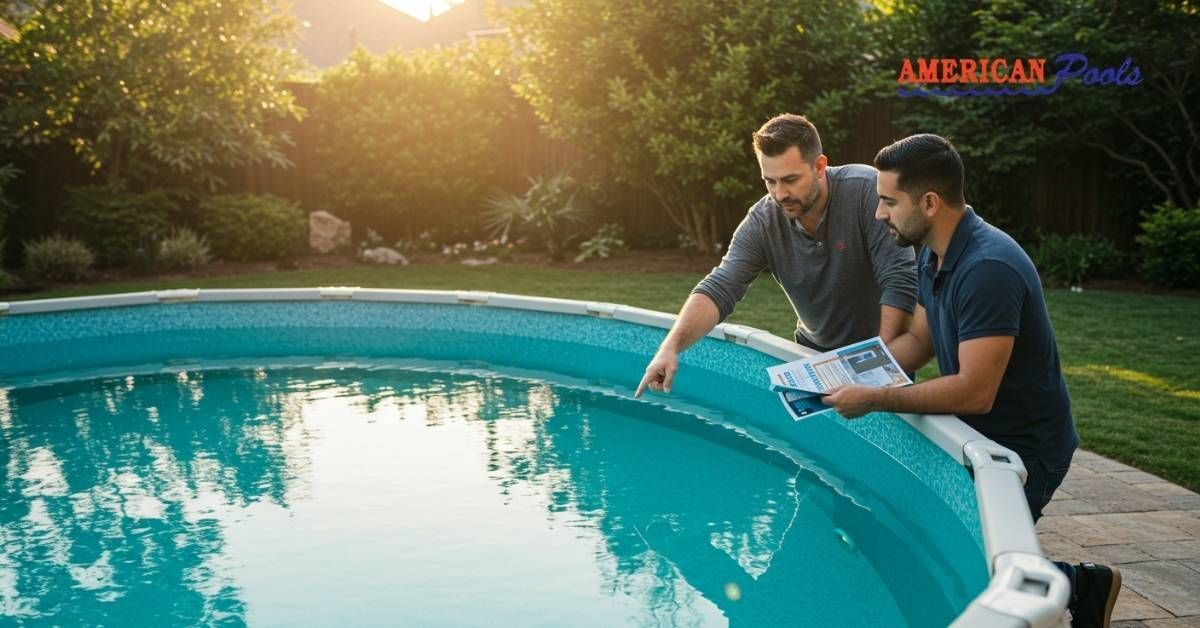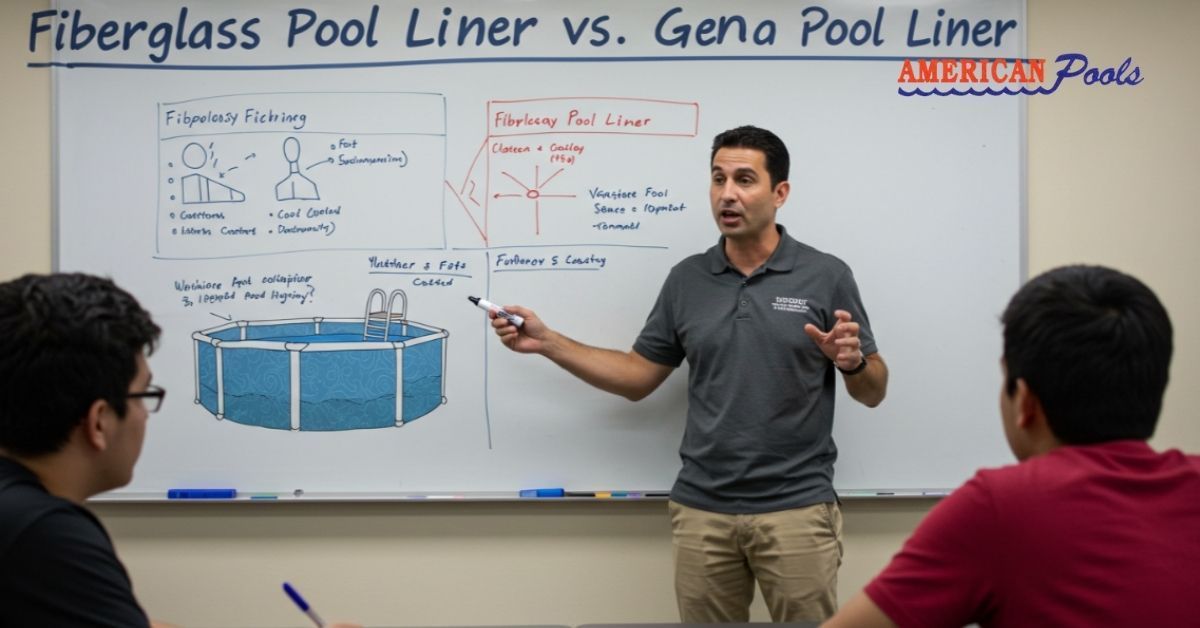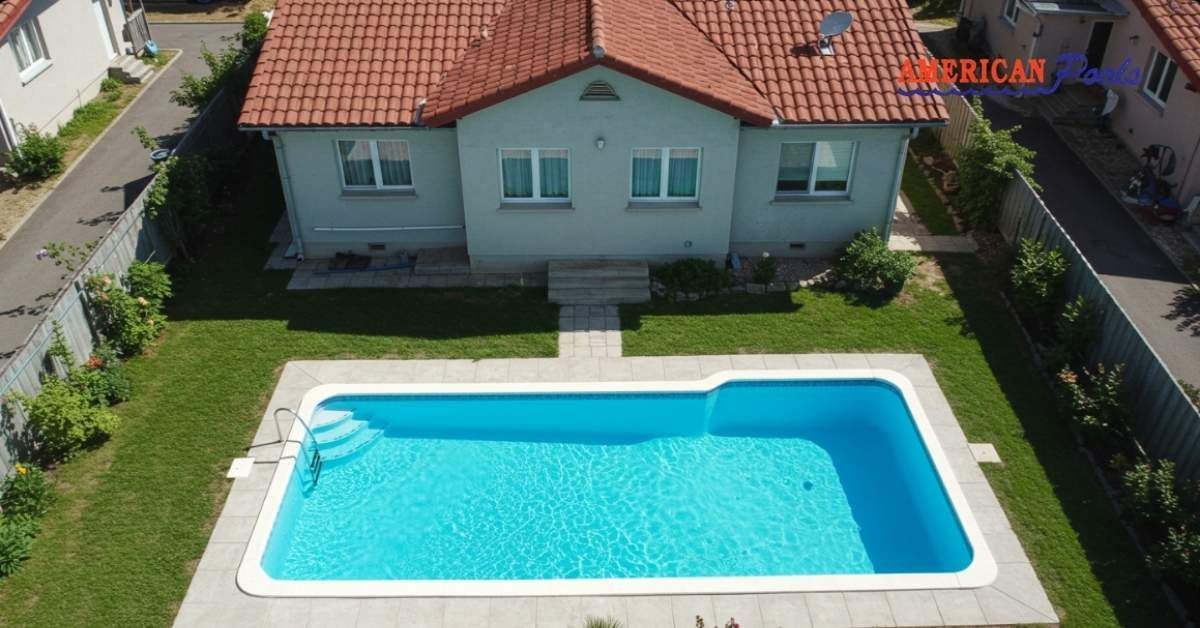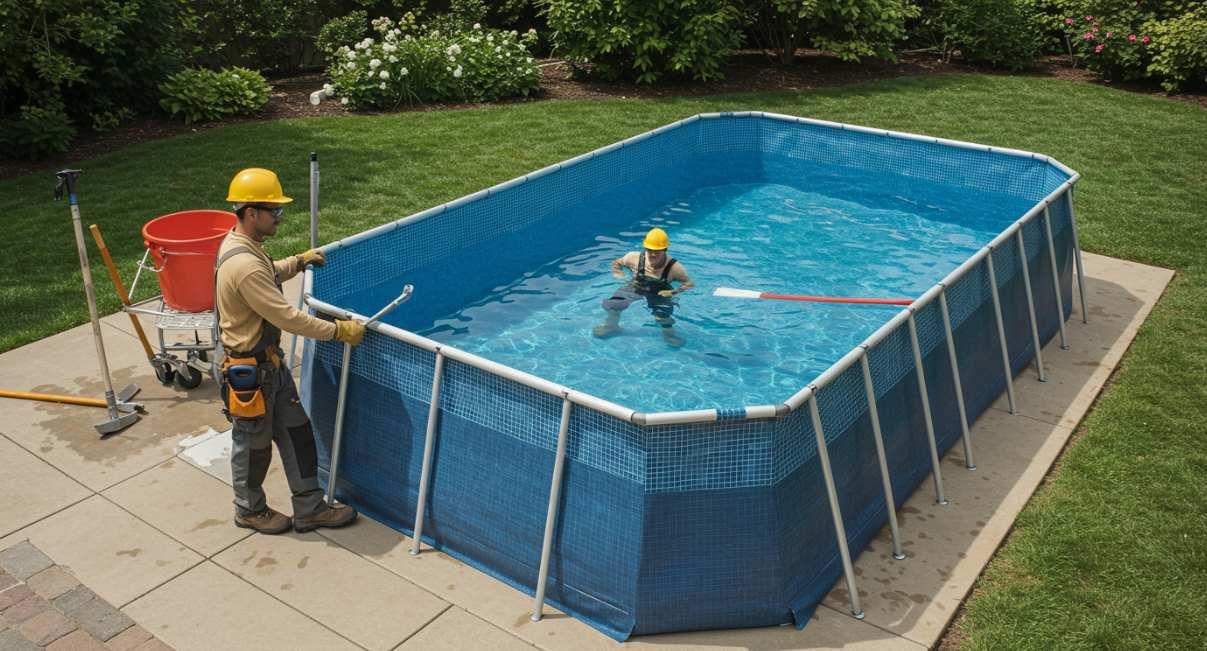Can You Drain a Fiberglass Pool?
If you own a fiberglass pool or plan to install one soon, you might be wondering: Can I drain my fiberglass pool without damaging it? It’s a simple question, but the answer isn’t as straightforward as you might think.
We at American Fiberglass Pools are well-equipped to guide you, with our extensive experience of over 50 years in designing, installing, and maintaining fiberglass pools across Houston and the surrounding areas. In this guide, we’ll explain when (and how) a fiberglass pool can be drained safely and what risks you need to know before taking the plunge.
Why Would You Drain a Pool in the First Place?
Draining a pool is not something most homeowners do regularly. But in certain situations, it may become necessary, such as:
- To resurface the pool interior
- To repair structural damage or plumbing leaks
- To deep-clean stubborn stains or algae buildup
- To reset the water chemistry that’s gone out of control
- To remove old water after years of use
Resurfacing or repairing cracks and blisters in fiberglass pools may require draining. However, draining must be handled with extreme caution.
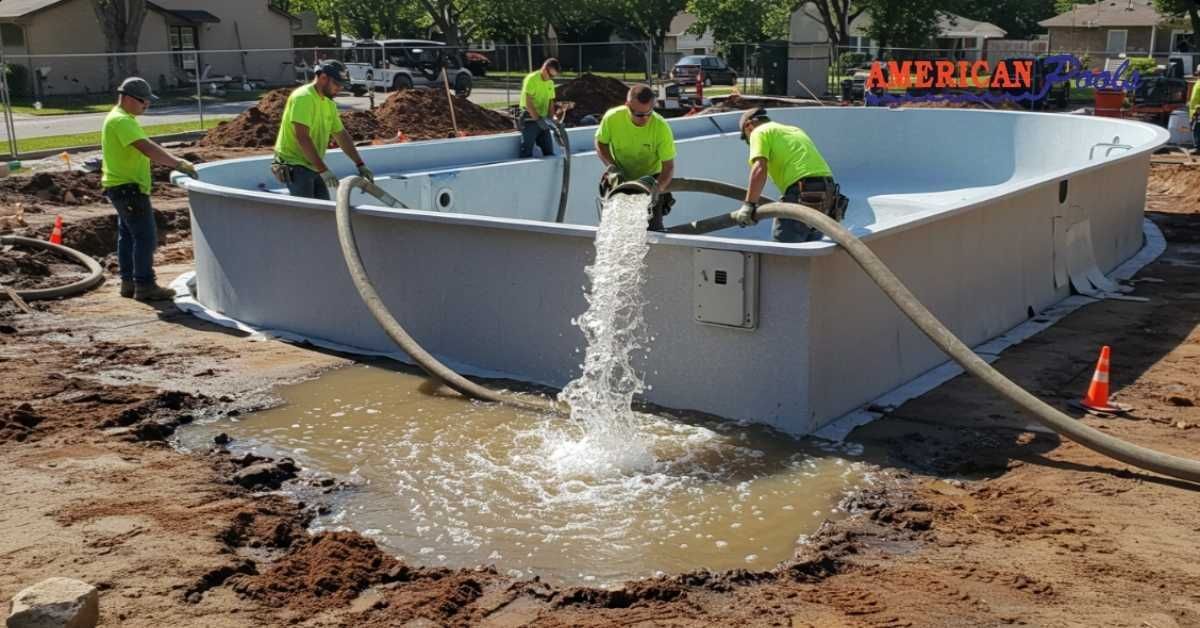
Can You Safely Drain a Fiberglass Pool?
Technically, yes. But only under the right conditions and with professional supervision.
Fiberglass pools are lightweight and installed on the ground like shells. When water drains out, the pressure from the surrounding soil and groundwater can cause the shell to shift, lift, or even crack. This is known as hydrostatic pressure.
Unlike concrete pools, fiberglass pools depend heavily on the water inside to stabilize their shape and position. If drained incorrectly, you risk serious and costly structural damage.
That’s why we at American Fiberglass Pools never recommend homeowners attempt to drain a fiberglass pool independently. DIY draining can cause structural damage, void the manufacturer's warranty, and pose potential safety hazards. It’s a high-risk task that requires professional planning and execution.
When and How to Drain a Fiberglass Pool the Right Way
Draining a fiberglass pool should only be done when necessary, and under the following conditions:
- Dry weather: Avoid draining during or right after heavy rains
- Stable soil moisture: Groundwater pressure should be minimal
- Proper drainage setup: Ensure water flows away from the pool shell
- Use of professional pumps and valves to control flow rate and avoid pressure shock
Before draining, we inspect the entire pool structure and the surrounding area. In some cases, we recommend partial draining or alternative cleaning methods instead.
If resurfacing or repair is needed, our team seamlessly handles both the safe draining and the Fiberglass Pool Installation or resurfacing process, saving homeowners time, money, and stress.
Draining vs. Partial Draining – What’s Better?
Sometimes, draining the entire pool isn’t necessary at all. Here's a side-by-side comparison to help you decide:
| Full Draining | Partial Draining |
|---|---|
| Needed for resurfacing or major repairs | Ideal for balancing water chemistry |
| Risk of structural damage if done improperly | Lower risk and often safe for DIY |
| Can void the manufacturer's warranty if not handled correctly | Keeps the pool warranty intact |
| Professionals should always do it | Sometimes, it is manageable by homeowners |
| Longer refill and rebalancing time | Faster turnaround time |
In most cases, partial draining is safer and more practical for fiberglass pool owners unless you're repairing or refinishing the interior.
Expert Advice from American Fiberglass Pools
With decades of experience in the fiberglass pool industry, our advice is simple: don’t drain your fiberglass pool unless you have to — and never do it alone.
Instead, contact a qualified pool technician who understands fiberglass pools' materials and structure. At American Fiberglass Pools, we’ve helped thousands of homeowners safely manage water levels, perform deep cleans, and carry out structural work—all while protecting the integrity of their pool investment.
Whether installing, resurfacing, or repairing a Fiberglass pool, our team ensures every step is done safely and correctly.
Maintenance Tips for Salt Water Fiberglass Pools After Draining
If you’ve drained your fiberglass pool — fully or partially — here are a few essential maintenance steps to follow before jumping back in:
- Scrutinize the shell for signs of cracks, bulges, or discoloration. These could indicate pressure damage or aging.
- Refill the pool as soon as possible to restore internal pressure and avoid shifting of the shell.
- Once the pool is filled, test and rebalance the water chemistry to ensure the correct pH, alkalinity, and chlorine levels.
- Examine the pool plumbing and equipment for airlocks or flow issues after restart.
- Avoid pressure washing or harsh scrubbing of the gel coat surface — gentle brushing is usually more than enough.
Final Thoughts: Should You Drain It or Not?
Draining a fiberglass pool is possible — but it’s not something you should attempt casually. The structure of your pool depends on the presence of water to stay balanced and secure. Improper draining can lead to irreversible damage, turning a simple cleaning project into a significant renovation. It's crucial to be aware of these risks and proceed with caution.
If you think your pool needs draining—whether for repairs, resurfacing, or maintenance—the best move is to speak with a professional. Their expertise and guidance can make the process smoother and safer, giving you peace of mind.
At American Fiberglass Pools, we’ve guided homeowners in Houston and beyond through pool upgrades and maintenance for over 50 years. Regarding safety and quality, we never cut corners — and neither should you.
FAQs About Draining a Fiberglass Pool
Is it ever safe to drain a fiberglass pool completely?
Yes, but only when handled by professionals with the right equipment and under favorable ground conditions. DIY draining is not recommended.
Can draining cause fiberglass pool damage?
Absolutely. Improper or unsupervised draining can cause the shell to crack, float, or deform due to external pressure.
How long can a fiberglass pool stay empty?
It should not stay empty for long. To minimize structural risk, professionals usually refill the pool within the same day.
What’s the safest way to clean a fiberglass pool without draining it?
Use a pool vacuum, gentle surface brush, and chemical treatments. For tough stains, partial draining may be enough.
Should I resurface my pool when it’s drained?
If your pool shows signs of aging, blistering, or fading, it’s a good opportunity to resurface. Our fiberglass pool resurfacing service ensures long-term protection and a refreshed look.

